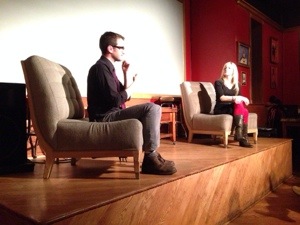I am thrilled to announce that I will be presenting “Deaf Interpreters: Past, Present & Future” at LaGuardia Community College in November and December. The training materials are provided by the NCIEC (National Consortium of Interpreter Education Center) where they developed 6 part training series.
Discover your potential as a Deaf interpreter as you explore the origins of this practice and how it has evolved. Gain an overview of the foundational skills and knowledge required of Deaf interpreters, and examine the role of the Deaf community along with interpreters in the future growth of the field.
Part 1 will be focused a few topics:
1) Historical evolution of Deaf Interpreting
2) Foundational, Language, Culture & Communication competencies
3) Language, Culture, Oppression & the Deaf world Community
4) Deaf Interpreter or Advocate
REGISTRATION and DATES:
DATES: Wednesdays: November 12—December 10, 2014: 5:45pm – 8:45pm
*No class on November 26, 2014
COST: $139
REGISTRATION:
Call: Vanessa Watson at (718) 482-5313,
E-mail: vwatson@lagcc.cuny.edu
Or Register online at www.laguardia.edu/ace/register
[contact-form to=’tester.christopher@gmail.com’ subject=’DI Training Series’][contact-field label=’Name’ type=’name’ required=’1’/][contact-field label=’Email’ type=’email’ required=’1’/][contact-field label=’Comment’ type=’textarea’ required=’1’/][/contact-form]




